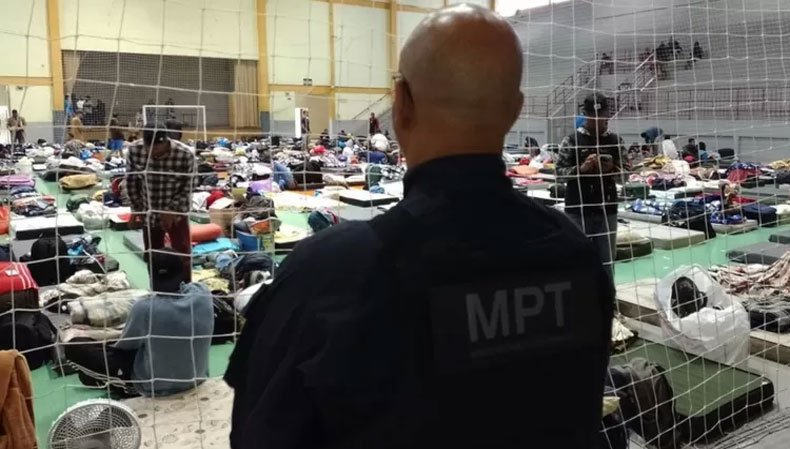
Workers rescued from vineyards in southern Brazil. Image:BBC
By Maria Josefina Arce
Currently in the world 50 million people are victims of slavery in its different modalities. In 2021 there were 10 million more than in 2016, according to the ILO, International Labor Organization.
Brazil, which abolished slavery in 1888, does not escape this problem, which mainly affects Afro-descendants and indigenous people. In recent weeks, several events have once again highlighted the persistence of this human rights violation in Brazilian territory.
The federal police rescued more than 200 workers from a grape harvest in the south of the country, who were victims of electric shocks, aggressions with sticks, pepper gas and threats.
According to experts, modern slavery in Brazil occurs mainly in agricultural activities, especially in sugar cane and coffee, but also in clothing manufacturing and construction.
This is, therefore, another of the challenges to be faced by the new government of President Luiz Inácio Lula da Silva, who in his two previous terms waged a battle against slave labor.
In his first term as head of the South American giant, just two months after taking office, Lula da Silva launched a National Plan to Eradicate Slave Labor, a coordinated action by the executive, legislative and judicial branches.
Thus, surveillance efforts were intensified and Article 149 of the Penal Code was amended to clearly define slave labor, which is defined as forced labor, debt bondage and degrading conditions.
This policy was maintained by her successor in the Planalto Palace, Dilma Rousseff, also from the Workers' Party. Under her presidency and that of Lula Da Silva, more than 44 thousand people were rescued from this condition.
But the parliamentary coup against Rousseff, which led to her impeachment, put an end to all the progress made. The coup leader Michel Temer never showed the slightest will to put an end to forced labor.
In recent years, reports of workers in conditions analogous to slavery have increased. In 2022 almost two THOUSAND were registered, according to the Brazilian Public Ministry of Labor.
Lula da Silva's government, which has expressed its commitment to guarantee the most basic human rights of all Brazilians, faces a great challenge, but has already expressed its intention to work for decent working conditions.

